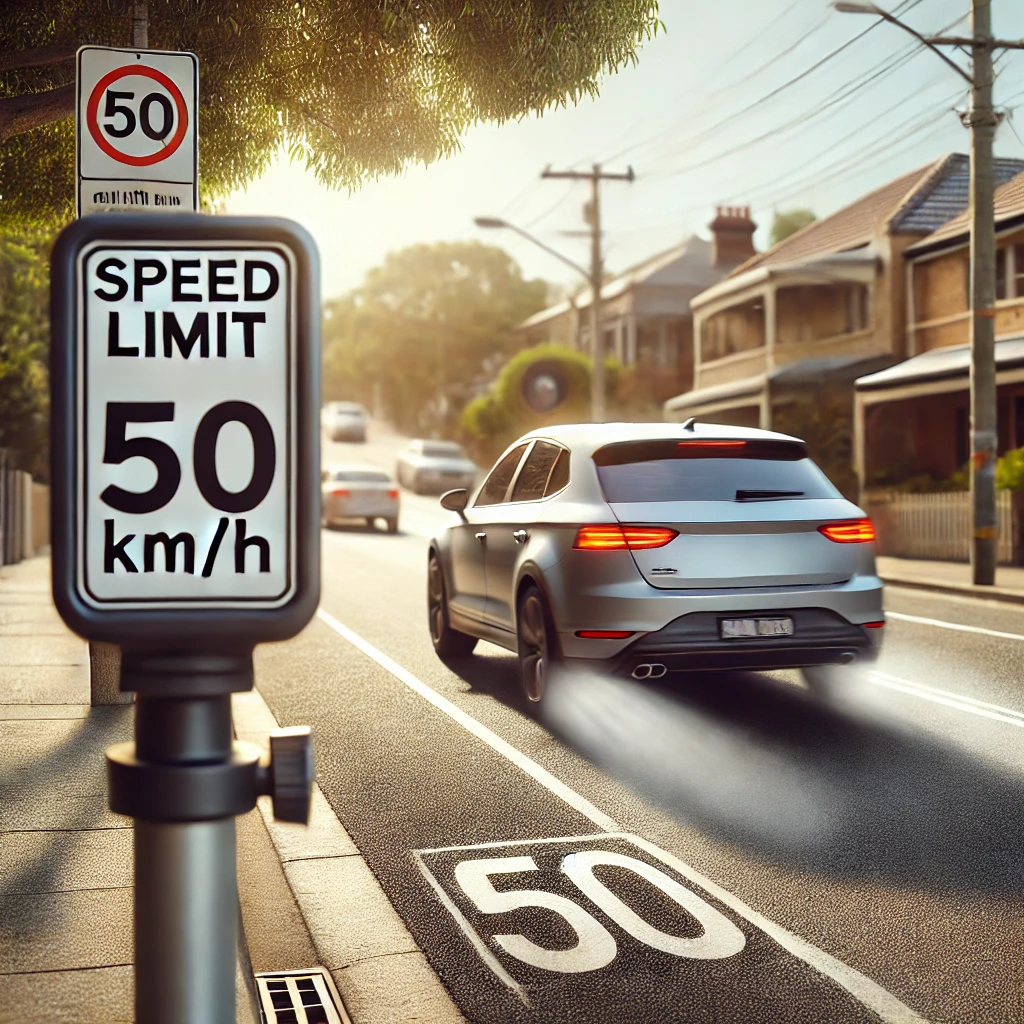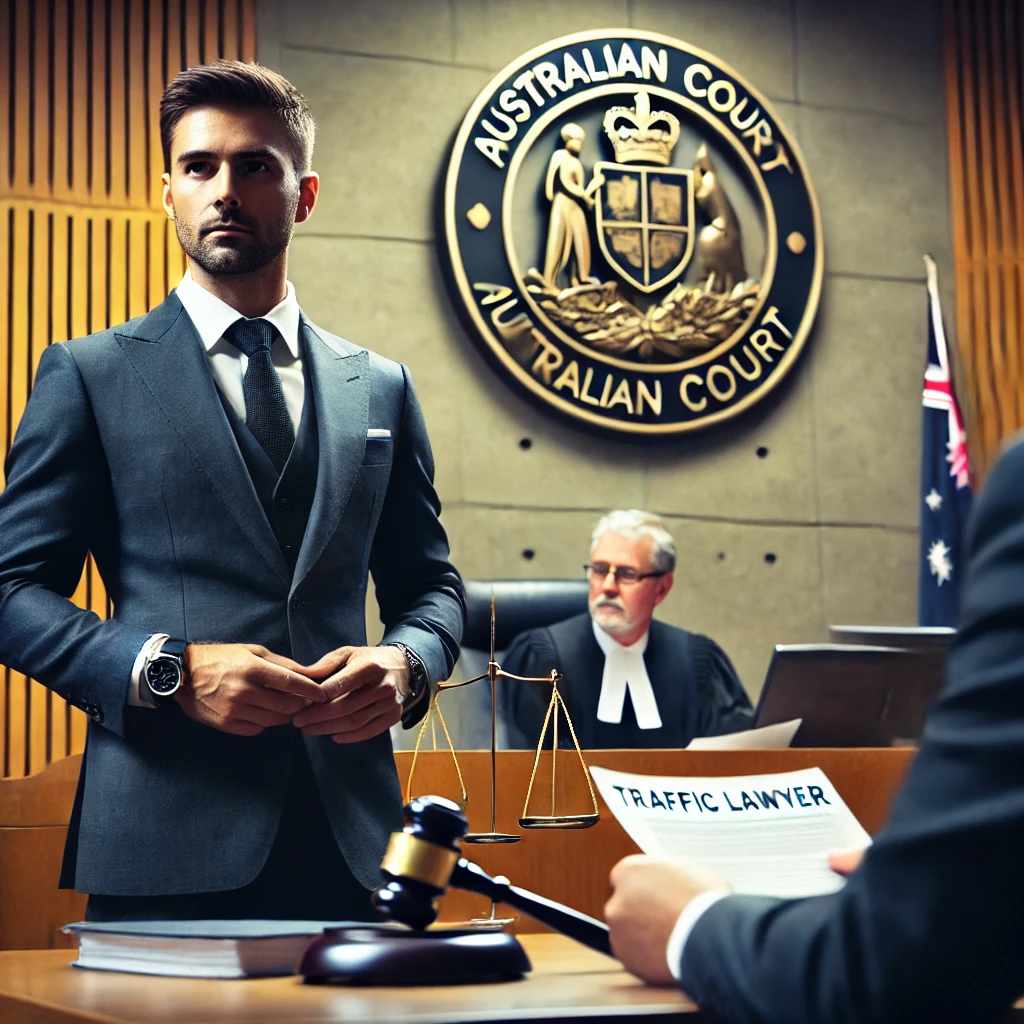7 Steps to Contest Your Fine How to Fight a Speeding Ticket in Sydney

In New South Wales, receiving a speeding ticket can be a stressful experience, both financially and for your driving record. Speeding tickets in Sydney often come with fines, demerit points, and the risk of license disqualification. At National Traffic Lawyers, we specialize in helping drivers fight speeding tickets. Whether it’s challenging the evidence, providing a defence, or navigating the court process, we can help you improve your chances of successfully contesting a speeding fine. For any assistance or legal advice, contact us at m. 0431969696, e. hello@nationaltrafficlawyers.com, or visit our website, nationaltrafficlawyers.com.au. Contents Understanding Speeding Fines in NSW 7 Steps to Contest a Speeding Fine Preparing Your Defence How to File an Appeal The Court Process After the Appeal: What’s Next? Important Deadlines and Extensions Key Takeaways Contact National Traffic Lawyers Understanding Speeding Fines in NSW Speeding offences in NSW are categorized based on the severity of the speed limit breach. Different categories of speeding fines in Sydney can lead to significant penalties, ranging from minor fines and demerit points to serious license disqualifications. Common speeding fines include: Exceeding the limit by 10 km/h or less: $128 fine, 1 demerit point Exceeding the limit by 11-20 km/h: $285 fine, 3 demerit points Exceeding the limit by 21-30 km/h: $489 fine, 4 demerit points Exceeding the limit by 31-45 km/h: $935 fine, 5 demerit points, immediate three-month suspension Over 45 km/h: $2,482 fine, 6 demerit points, immediate six-month suspension For more information about speed camera fines and penalties for speeding in Sydney, visit our other pages. 7 Steps to Contest a Speeding Fine Review the Fine Notice: Carefully check for errors in the details, such as the date, location, and speed recorded. Evaluate Your Options: Decide whether to pay the fine, request a review, or contest it in court. Gather Evidence: Collect documents, photos, and records that support your case. Seek Legal Advice: Consult a lawyer specializing in traffic law to assess the strengths and weaknesses of your case. Submit Your Appeal: File your application either online, by mail, or in person within 28 days of the fine notice. Attend Court: If the case goes to court, prepare to present your evidence and argue your case. Understand the Possible Outcomes: The court may dismiss the fine, reduce penalties, or impose stricter sanctions. Preparing Your Defence Proper preparation is essential when you decide to fight a speeding ticket in Sydney. Here are some steps to help build your defence: Review the evidence: Obtain copies of any photos, radar readings, or footage. Gather documents: Secure evidence like maintenance records if vehicle defects contributed to the fine. Seek legal advice: Consult with a traffic lawyer to better understand your chances of successfully contesting the fine. How to File an Appeal You can fight a speeding ticket by filing a request with Revenue NSW or applying to have the matter heard in court. Here’s how: Online application: Submit your request through Revenue NSW’s ‘myPenalty’ system. Mail or in-person application: Complete a ‘Request to Have a Penalty Decided in Court – Individual’ form, sending it to Revenue NSW. Make copies of your application and supporting documents for your records. Written request: Mail a letter detailing your circumstances, including your penalty notice number and personal details. The Court Process If your appeal proceeds to court, a magistrate will review your case. Here’s how it works: Mention hearing: This initial hearing determines whether you plead guilty or not guilty. You can submit a ‘Written Notice of Pleading’ if you prefer not to attend. Pleading guilty: You acknowledge the offence but may argue for leniency. The court may still impose fines or other penalties. Pleading not guilty: If you challenge the charge and the magistrate is not convinced beyond reasonable doubt, the fine will be dismissed. After the Appeal: What’s Next? If your attempt to fight the speeding ticket is unsuccessful: Payment plans are available: For financial hardship, arrangements can be made to pay in instalments. Request an extension: If you need more time, apply for an extension to pay the fine. Important Deadlines and Extensions Court applications: Must be submitted within 28 days from the notice date. Review applications: If applying through Revenue NSW, do so before the deadline specified on your notice. Key Takeaways Understand the penalties for speeding in NSW: Heavy fines, demerit points, and potential disqualification are serious consequences. Know your options: Pay the fine, request a review, or fight the speeding ticket in court. Seek expert advice: Legal representation can improve your chances of a successful outcome. Contact National Traffic Lawyers For tailored advice and experienced legal representation to help you fight a speeding ticket in Sydney, contact National Traffic Lawyers. Our team specializes in traffic law and can help guide you through every step of the process. Phone: m. 0431969696 Email: hello@nationaltrafficlawyers.com Website: nationaltrafficlawyers.com.au
5 Crucial Facts About Traffic Offences in NSW You Must Know. A Comprehensive Guide

Find out how National Traffic Lawyers can help you understand and navigate traffic offences in NSW. Learn about the penalties for speeding, drink driving, and other serious offences in this comprehensive guide. Understanding Traffic Offences in NSW: A Comprehensive Guide Traffic offences in New South Wales (NSW) can have serious consequences, including hefty fines, loss of your driver’s licence, or even imprisonment in some cases. This guide breaks down key traffic offences, penalties, and how understanding NSW road rules can help you avoid them. National Traffic Lawyers are here to provide you with expert legal advice and representation should you find yourself dealing with a traffic-related issue. 1. NSW Road Offences and Penalties: What You Need to Know When you break road rules in NSW, penalties can range from fines and licence suspensions to vehicle impoundment and jail time. The NSW government provides a search tool where you can find a full list of road-related penalties and offences. You can also refer to the Judicial Commission of NSW’s law codes to stay updated on penalties. Here’s a breakdown of the most common offences. 2. Speeding Offences: NSW’s Biggest Road Killer Speeding is responsible for the majority of fatal road accidents in NSW. Penalties for speeding range depending on how much over the limit you’re driving. Here’s what you need to know: Learn more about speeding offences and penalties. 3. Licence and Registration Offences: Keep Your Paperwork in Order Driving without a valid licence or with an unregistered or uninsured vehicle can result in significant penalties. Unlicensed driving, for example, may lead to a $5500 fine and a potential prison sentence for repeat offenders. Ensure your vehicle registration and insurance are up to date to avoid these issues. Explore the penalties for licence and registration offences. 4. Drink and Drug Driving Offences: No Tolerance for Impaired Driving NSW has some of the strictest laws against drink driving and drug driving. You could face serious consequences if caught with any level of alcohol or drugs in your system while driving. Penalties vary based on blood alcohol concentration (BAC) or drug levels. Find out more about drink and drug driving penalties. 5. Serious Driving Offences: Severe Penalties for Endangering Lives Some traffic offences can result in death or serious injury, categorizing them as serious driving offences. If convicted, you’ll face severe penalties, including long-term licence disqualification, imprisonment, and vehicle sanctions. Read more about serious driving offences and penalties. Vehicle Sanctions for Repeat Offenders Repeat offenders of drink driving, drug driving, or speeding offences may face vehicle sanctions. This means police could impound your vehicle or confiscate your number plates, making it impossible for you to drive until your case is resolved in court. These penalties are in place to keep high-risk drivers off the roads and improve overall safety. Learn more about vehicle sanctions here. Traffic Laws for Heavy Vehicles Heavy vehicle operators must follow strict regulations, as these vehicles pose significant safety risks. Overloading or driving a heavy vehicle that exceeds the size limit can result in major fines, demerit points, and vehicle impoundment.Find out more about heavy vehicle offences. Other Traffic Offences You Should Be Aware Of Traffic Offence Appeals and Legal Assistance If you have been charged with a traffic offence, you may have the option to appeal the decision. For severe offences, appearing in court with legal representation can make a significant difference in the outcome of your case. National Traffic Lawyers specialize in helping clients appeal traffic offences and reduce their penalties. Contact us for a free consultation on your traffic matter. Why Choose National Traffic Lawyers? With extensive experience in NSW Traffic Law, National Traffic Lawyers have a proven track record of successfully helping drivers reduce or avoid penalties, suspensions, and convictions. We specialize in: Take Action Today! Contact Us If you’ve been charged with a traffic offence in NSW, don’t wait. Contact National Traffic Lawyers for expert legal advice and representation. Our experienced lawyers will help you achieve the best possible outcome. Conclusion Traffic offences can have serious and lasting impacts on your life. Whether it’s a minor speeding ticket or a serious driving charge, understanding NSW traffic laws and knowing your rights is crucial. By choosing National Traffic Lawyers, you’re choosing experienced professionals who will fight for your rights and provide you with the best possible defence.
